Chloe Braud
Augmenting Transformers with KNN-Based Composite Memory for Dialogue
Apr 27, 2020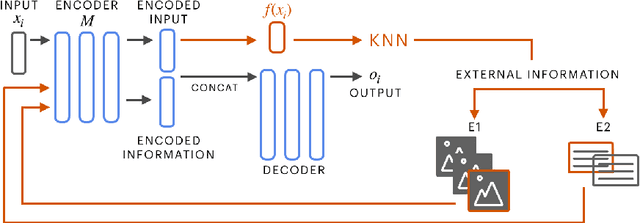
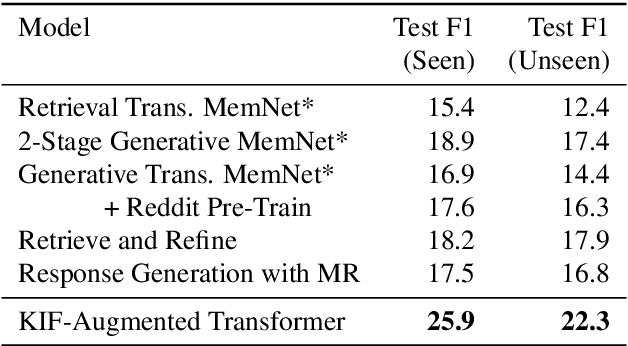
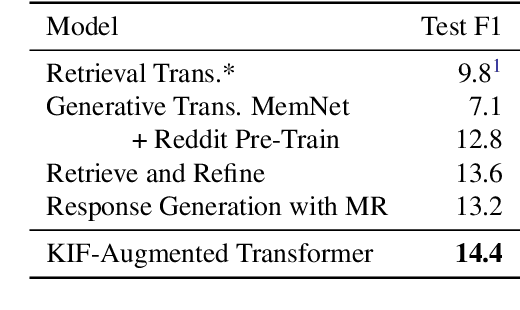

Abstract:Various machine learning tasks can benefit from access to external information of different modalities, such as text and images. Recent work has focused on learning architectures with large memories capable of storing this knowledge. We propose augmenting generative Transformer neural networks with KNN-based Information Fetching (KIF) modules. Each KIF module learns a read operation to access fixed external knowledge. We apply these modules to generative dialogue modeling, a challenging task where information must be flexibly retrieved and incorporated to maintain the topic and flow of conversation. We demonstrate the effectiveness of our approach by identifying relevant knowledge from Wikipedia, images, and human-written dialogue utterances, and show that leveraging this retrieved information improves model performance, measured by automatic and human evaluation.
Using Local Knowledge Graph Construction to Scale Seq2Seq Models to Multi-Document Inputs
Oct 18, 2019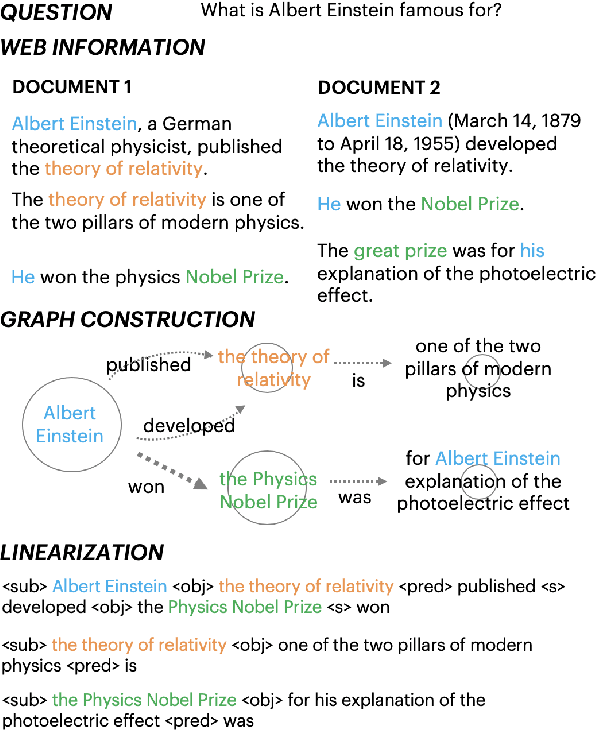
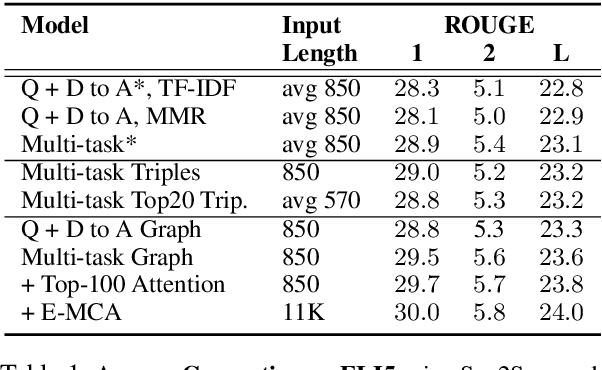
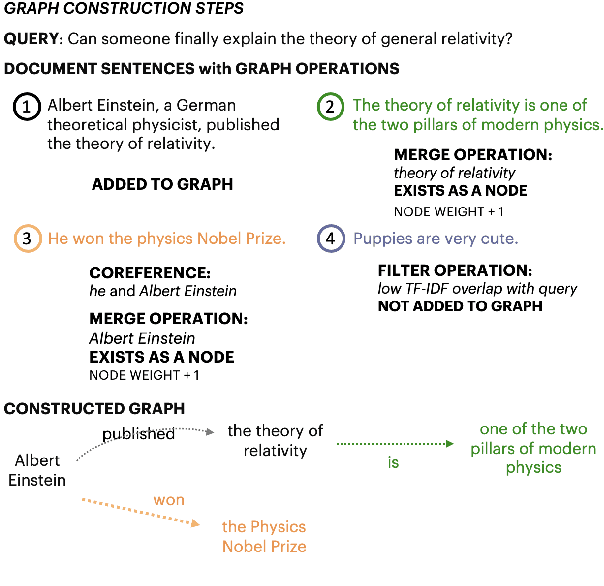
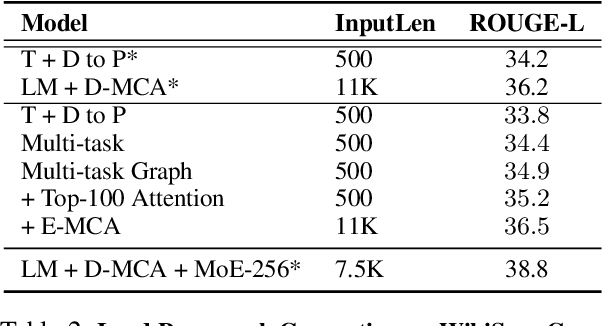
Abstract:Query-based open-domain NLP tasks require information synthesis from long and diverse web results. Current approaches extractively select portions of web text as input to Sequence-to-Sequence models using methods such as TF-IDF ranking. We propose constructing a local graph structured knowledge base for each query, which compresses the web search information and reduces redundancy. We show that by linearizing the graph into a structured input sequence, models can encode the graph representations within a standard Sequence-to-Sequence setting. For two generative tasks with very long text input, long-form question answering and multi-document summarization, feeding graph representations as input can achieve better performance than using retrieved text portions.
 Add to Chrome
Add to Chrome Add to Firefox
Add to Firefox Add to Edge
Add to Edge